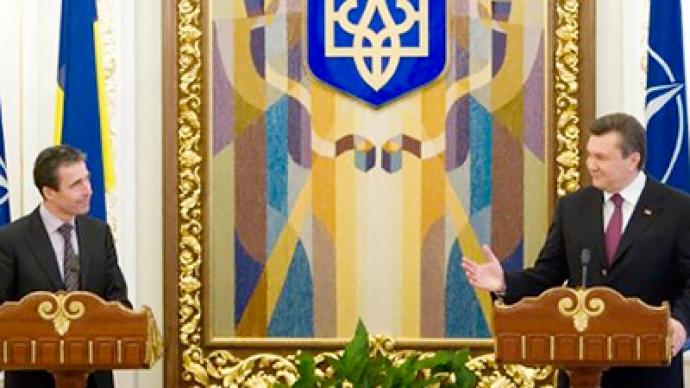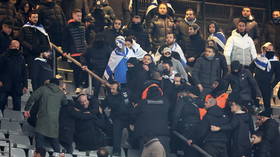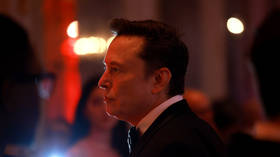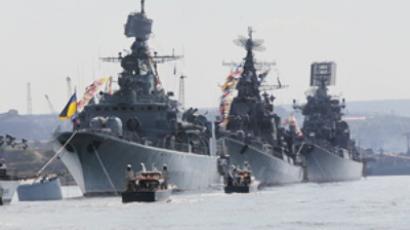Ukraine may strengthen ties with NATO without joining it

Although President Viktor Yanukovich declared Ukraine’s non-aligned status, Kiev may be taking a new line to have closer relations with the alliance.
As Kiev and the western military bloc discuss the schedule of joint events for 2011, they are touching upon issues which are very sensitive for Russia. The list reportedly includes the future of Russia’s Black Sea Fleet in the Crimea, missile defense, the reform of Ukrainian intelligence and even the national security conception, Kommersant daily said on Tuesday.Last week, the Russian Foreign Ministry issued a tough statement concerning the appearance of the US guided missile cruiser Monterey. The vessel, which carries Aegis missile systems, is in the Black Sea carrying out naval maneuvers with Ukraine in exercises dubbed Sea Breeze 2011. Moscow described the move as a threat to national security, but stopped short of openly criticizing Kiev for inviting the cruiser.Later in the week, the deputies of the Ukrainian parliament refused to put on their agenda a draft bill denouncing the accords between Moscow and Kiev on extending the presence of Russia’s Black Sea Fleet in Ukraine. The agreement was signed in April 2010 and it envisions that Russia’s Black Sea Fleet will stay in the Crimea peninsula until 2042. The accord has an option that also allows Russia not to leave its base in Sevastopol until 2047.At the same time, Kiev and NATO are developing a program of joint exercises. Under President Viktor Yushchenko, Yanukovich opposed the plan to hold such maneuvers on Ukraine’s territory. Now they are taking place in “a provocative manner,” Konstantin Kosachev, head of the State Duma Foreign Affairs Committee, told Kommersant. Ukraine’s nonaligned status, which was declared in regards to both internal and foreign policies, was adopted by the parliament, Verkhovnaya Rada, in June last year. But now the daily has cited a document that could evidence the strengthening of relations between NATO and Kiev. It concerns the schedule of joint events for 2011 in the framework of the NATO-Ukraine commission. According to the plan, as many as 64 events have been discussed. Moscow may also be concerned over the NATO-Ukrainian discussion of such sensitive issues as missile defense, the presence of the Russian fleet in the Crimea, the settlement in the Moldova’s Transdniester region, among others. Kiev’s relations with the alliance “are not transparent enough for us,” Kosachev said. “They say one thing to us, but they do the opposite,” he stressed, adding that Russia will be forced to react. However, despite any possible misunderstanding over NATO between Russia and Ukraine, Yanukovich on Monday confirmed the country’s non-aligned status once again. “Exactly a year ago, we summarily rejected the idea of joining NATO and this step has proved to be correct,” he told the Slovak newspaper Pravda.According to the Ukrainian leader, the issue of Ukraine's accession to NATO is not on the agenda now. At the same time, Kiev is ready to maintain the present level of cooperation with the alliance. Ukraine has been a party to NATO's Partnership for Peace program since 1994, and is now promising to fulfill all of the earlier agreements on partnership.On Tuesday, Yanukovih stressed that Ukraine will not be taking part in the creation of the common European missile defense system. Kiev did not intend to do it in the past, and currently does not have any such plans, he noted. “I think we will not take part in building this system,” he told reporters in Strasbourg.













